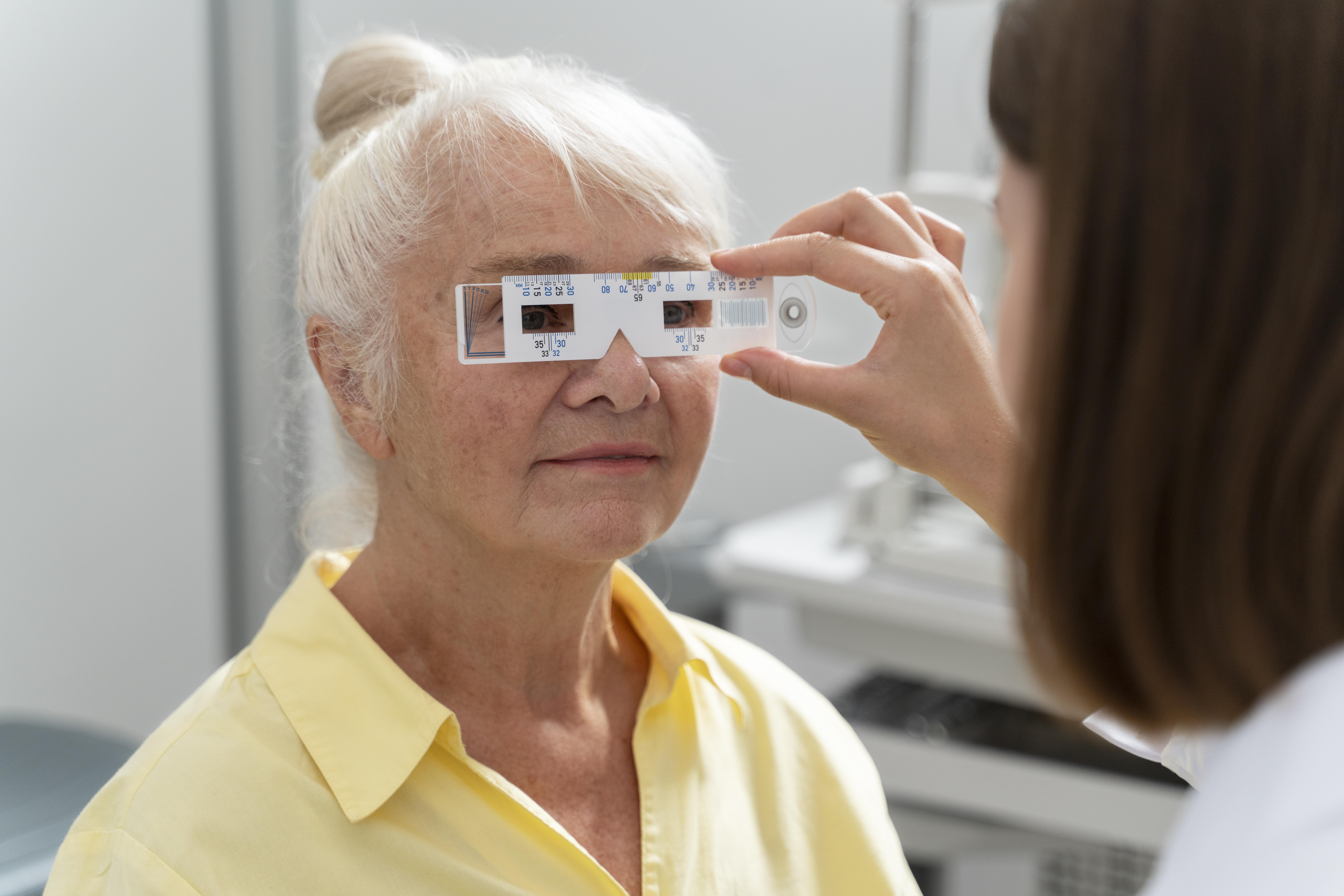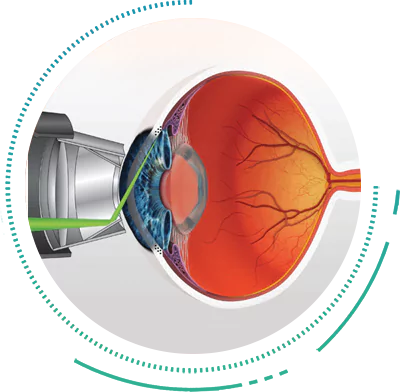Advanced Refractive Surgeries in AL: Clear Vision Without Glasses
Advanced Refractive Surgeries in AL: Clear Vision Without Glasses
Blog Article
Comprehending the Various Vision Improvement Procedures Available for Clearer Sight
In the world of vision adjustment treatments, a wide range of alternatives exist to deal with refractive errors and give individuals with clearer view. From the widely acknowledged LASIK surgery to much less intrusive procedures like PRK and implantable lenses, the field of ophthalmology uses a series of methods customized to suit various needs and preferences. Each treatment features its own set of considerations, benefits, and potential risks. Understanding the nuances of these vision modification approaches is essential for making educated choices about one's visual health and wellness. Allow's explore the complexities of these procedures and clarified the course to achieving improved vision quality.
LASIK Surgery
LASIK surgery is a common refractive treatment utilized to deal with vision issues such as farsightedness, astigmatism, and nearsightedness - refractive surgeries in al. This medical method, which stands for Laser-Assisted sitting Keratomileusis, intends to reshape the cornea to improve just how light is concentrated on the retina, eventually enhancing vision quality. Throughout the procedure, a slim flap is produced on the cornea, and a laser is utilized to remove specific amounts of tissue to improve it appropriately. This reshaping permits light to be accurately focused onto the retina, correcting refractive mistakes.
One of the key benefits of LASIK surgical procedure is the rapid improvement in vision experienced by people. Numerous people see a considerable improvement in their eyesight promptly after the procedure. Furthermore, the majority of clients report very little discomfort and pain during the surgical procedure and recovery duration. The recuperation time for LASIK is reasonably quick, with many individuals going back to their day-to-day activities within a day or 2 post-operation. On the whole, LASIK surgery is a prominent option for individuals seeking a lasting remedy for their vision issues.
PRK Treatment
While also an usual refractive procedure, the PRK (Photorefractive Keratectomy) method varies from LASIK surgical treatment in its method to correcting vision issues. In PRK, rather than creating a flap on the cornea, the outer layer of the cornea, called the epithelium, is entirely removed. This enables the laser to reshape the cornea to correct refractive errors such as astigmatism, farsightedness, and nearsightedness directly externally.

In spite of the longer recovery time, PRK can yield superb outcomes in vision renovation, making it a beneficial option for those who might not be ideal candidates for LASIK surgery.
Implantable Lenses
Unlike PRK where the cornea is reshaped straight, implantable lenses use one more method for dealing with vision by placing synthetic lenses inside the eye. This procedure is specifically beneficial for people with high degrees of astigmatism, farsightedness, or nearsightedness that may not appropriate prospects for laser surgical treatments like LASIK or PRK.
Implantable lenses, also called phakic intraocular lenses, work by supplementing the eye's all-natural lens with a click to read more synthetic one. retina service near me. These lenses can be positioned in front of the natural lens (anterior chamber) or behind the iris and before the natural lens (posterior chamber) By changing the power and positioning of these lenses, eye doctors can efficiently remedy refractive errors and improve aesthetic acuity
One benefit of implantable lenses is that they are detachable and exchangeable, offering versatility for future adjustments. Nonetheless, just like any type of operation, there are threats involved, such as infection or cataract formation. Patients taking into consideration implantable lenses need to consult with an eye care expert to establish one of the most suitable option based on their individual demands and eye health and wellness.
Corneal Rings
Corneal rings, likewise understood as intracorneal ring segments, are small, clear tools inserted right into the cornea to remedy vision distortions such as keratoconus. Keratoconus is a condition where the cornea thins and bulges outside, triggering vision to become altered. The insertion of corneal Recommended Site rings assists to squash the cornea, boosting aesthetic acuity and minimizing the uneven astigmatism created by keratoconus.
The procedure for placing corneal rings is reasonably quick and minimally invasive, commonly carried out as an outpatient procedure. During the surgical treatment, the eye doctor makes a tiny cut in the cornea and inserts the rings at a certain deepness. Once in location, the rings help to improve the cornea, supplying a smoother surface area for light to go into the eye, which can result in more clear vision.
Corneal rings are considered a reversible treatment, as they can be eliminated or changed if essential. eyecare near me. While they may not totally remove the demand for glasses or contact lenses, corneal rings can significantly improve vision high quality and overall visual convenience for people with keratoconus or other corneal abnormalities
Refractive Lens Exchange
Complying with the correction of corneal irregularities with procedures like corneal rings, another vision modification technique that can resolve refractive mistakes is Refractive Lens Exchange (RLE) RLE is a procedure that entails changing the eye's all-natural lens with a fabricated intraocular lens (IOL) to deal with refractive errors such as presbyopia, farsightedness, and nearsightedness. This treatment is especially valuable for people who may not be appropriate candidates for treatments like LASIK or PRK due to elements such as thin corneas or high refractive mistakes.

Final Thought
Finally, there are various vision adjustment procedures offered to aid people attain more clear sight. LASIK surgical procedure, PRK treatment, implantable lenses, corneal rings, and refractive lens exchange are all choices that can resolve different vision concerns. It is very important for individuals to speak with their eye treatment provider to figure out one of the most suitable treatment based on their details requirements and preferences. With developments in technology, achieving enhanced vision is currently a lot more easily accessible than ever before.
In the realm of vision modification treatments, a plethora of alternatives exist to resolve refractive mistakes and give people with more clear view.LASIK surgery is a typical refractive procedure used to correct vision problems such as farsightedness, astigmatism, and nearsightedness.While likewise a common refractive treatment, the PRK (Photorefractive Keratectomy) strategy varies from LASIK surgical treatment in its technique to remedying vision problems.Following the improvement of corneal abnormalities with procedures like corneal rings, another vision improvement strategy that can deal with refractive errors is Refractive Lens Exchange (RLE) LASIK surgical procedure, PRK treatment, implantable lenses, corneal rings, and refractive lens exchange are all options that can resolve various vision problems.
Report this page